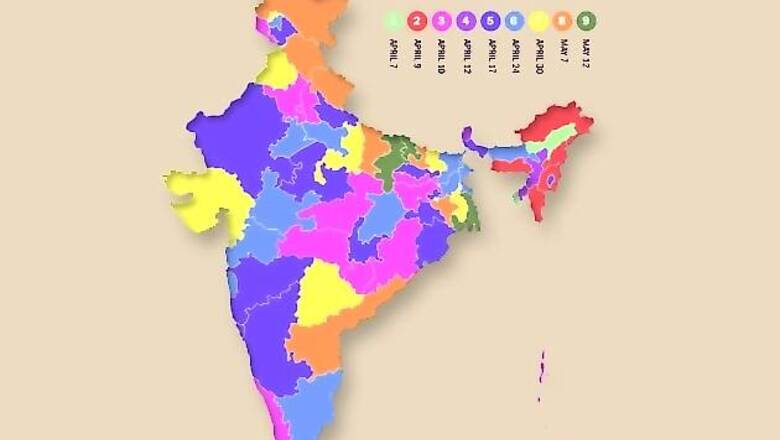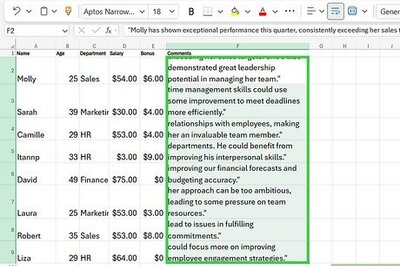
views
New Delhi: In the biggest election in the world with an electoral roll of 81.4 crore, India will vote for the 16th Lok Sabha from April 7 to May 12. The outcome of the nine-phase poll will be announced on May 16. This is the first time that the Lok Sabha elections will be held in nine phases.
Chief Election Commissioner VS Sampath on Wednesday said 81.4 crore people will be eligible to vote, a number larger than the population of Europe, making this the biggest election the world has ever seen. There have been 10 crore new voters since the 2009 elections.
The first phase of polling will take place on April 7, covering 2 states and 6 constituencies, second phase on April 9, covering 5 states and 7 constituencies, third phase on April 10, covering 14 states and 92 constituencies, fourth phase on April 12, covering 3 states and 5 constituencies, fifth on April 17, covering 13 states and UTs and 122 constituencies, sixth phase on April 24, covering 12 states and 117 constituencies, seventh phase on April 30, covering 9 states and 89 constituencies, eighth phase on May 7, covering 7 states and 64 constituencies and ninth phase on May 12, covering 3 states and 41 constituencies.
While the number of voters has gone up to a record electoral roll, the poll spending has also been hiked. From the coming elections, candidates in a Parliamentary constituency in bigger states can spend up to Rs 70 lakh on their campaign, up from Rs 40 lakh in 2011. In the 2009 elections, it was Rs 25 lakh.
Calling it yet another milestone in the history of Indian democracy, Sampath appealed to political parties and candidates to uphold the democratic traditions of the nation by maintaining high standards of political discourse and fair play in the course of their election campaigns.
The EC will use EVMs for the Lok Sabha elections and a total of over 17 lakh EVMs will be deployed during the polls. For the first time in parliamentary polls, a system of paper trail for electronic voting will be introduced in some constituencies on a trial basis and the Commission is in the process of procuring 20,000 EVMs which will be deployed for this purpose.
The EC is also introducing a system of optional e-filing of affidavits by candidates to ensure that no omission is made out. A candidate will have to file a hard copy of the affidavit along with the nomination paper.
In case a column is left blank, the Returning Officer will send a notice to the candidate for filing a fresh one, failing which the nomination is liable to be rejected following a Supreme Court directive in this regard. The Commission has also issued guidelines to political parties asking them to explain the rationale of financing the promises they make in their election manifestos. The guidelines that followed Supreme Court directions in this regard have now been made part of the Model Code.
A total of 1.1 crore poll personnel, half of them being security forces, will be deployed for the smooth conduct of polls and to ensure that they are free and fair. A database of the civilian staff to be deployed for conducting polls has been prepared and at least 5.5 million civilian staff would be deployed.
The 2014 Lok Sabha elections are being seen as a game changing battle with the entry of the Aam Aadmi Party and the emergence of the Third Front even as the Bharatiya Janata Party and the Indian National Congress fight it out. These elections will witness a virtual contest between BJP PM candidate Narendra Modi and Congress Vice President Rahul Gandhi.
(With additional information from PTI and Reuters)
####









Schedule of Elections by Network18
States and Constituencies voting schedule
table.tableizer-table { border: 1px solid #CCC; font-family: Arial, Helvetica, sans-serif font-size: 12px;} .tableizer-table td { padding: 4px; margin: 3px; border: 1px solid #ccc;}.tableizer-table th { background-color: #104E8B; color: #FFF; font-weight: bold;}



















Comments
0 comment